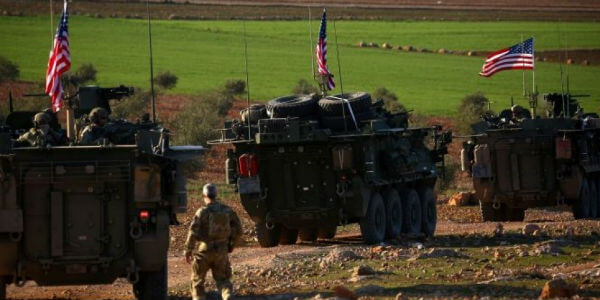The New York Times reports: Rattling a country already wrestling with a faltering economy and deepening political malaise, two suicide bombings that killed 44 people at Coptic churches in Egypt on Palm Sunday raised the specter of increased sectarian bloodshed led by Islamic State militants.
The attacks constituted one of the deadliest days of violence against Christians in Egypt in decades and presented a challenge to the authority of the country’s leader, President Abdel Fattah el-Sisi, who promptly declared a three-month state of emergency.
Security is the central promise of Mr. Sisi, a strongman leader who returned on Friday from a triumphant visit to the United States, where President Trump hailed him as a bulwark against Islamist violence. Mr. Trump made it clear that he was willing to overlook the record of mass detention, torture and extrajudicial killings during Mr. Sisi’s rule in favor of his ability to combat the Islamic State and defend minority Christians.
On Sunday, Mr. Sisi found himself back on the defensive, deploying troops to protect churches across the country weeks before a planned visit by Pope Francis. Mr. Sisi rushed to assure Christians, who have traditionally been among his most vocal supporters and now fear that he cannot protect them against extremists. [Continue reading…]
Mokhtar Awad writes: Four months after an Islamic State suicide bomber killed 28 Christian worshipers in Cairo, the group struck Egypt’s Christians again—this time with a double church bombing on Palm Sunday that left at least 44 dead and scores injured. The attacks, only hours apart, targeted a church in the Delta city of Tanta as well as a church in Alexandria where Coptic Pope Tawadros II was leading a service. It was the single deadliest day of violence directed against the Middle East’s largest Christian community in decades.
When the ISIS claim of responsibility came within hours of the attacks, it wasn’t a surprise. For months, the Islamic State has been accelerating the import of Iraq-style sectarian tactics to Egypt. In doing so, the group hopes to destabilize the Middle East’s most populous country and expand the reach of its by now clearly genocidal project for the region’s minorities.
Egyptian authorities have thus far been unable to keep up with this escalating threat. This may be largely due to their own incompetence, but it also reflects the increasing sophistication of ISIS assets directed at Egypt. As the group goes on the defensive elsewhere, mainland Egypt is too attractive a potential front in its jihad to pass up. It appears that the group is now focusing more time, resources, and most importantly ISIS talent on Egypt, making the situation likely to worsen in the future.
Targeting Egypt’s Christians is a cold and calculated strategy for the group. ISIS hopes that inflaming sectarian strife in Egypt will be the first step in the country’s unraveling. Several explosions have rocked Cairo and the Delta since 2013, carried out by both ISIS and its precursor group Ansar Bayt al-Maqdis, which pledged its allegiance to Raqqa in 2014. Yet despite this, Islamic State efforts had before now largely floundered in mainland Egypt—where nearly 97 percent of the population resides—due in part to the strength of the central government, the amateur nature of Islamic State assets, and perhaps most importantly, the relative cohesiveness of Egyptian society. The group has fared much better in the remote North Sinai, where it has killed over a thousand government troops in recent years, but the area is simply too far away from Cairo to constitute an existential threat to the government. [Continue reading…]

